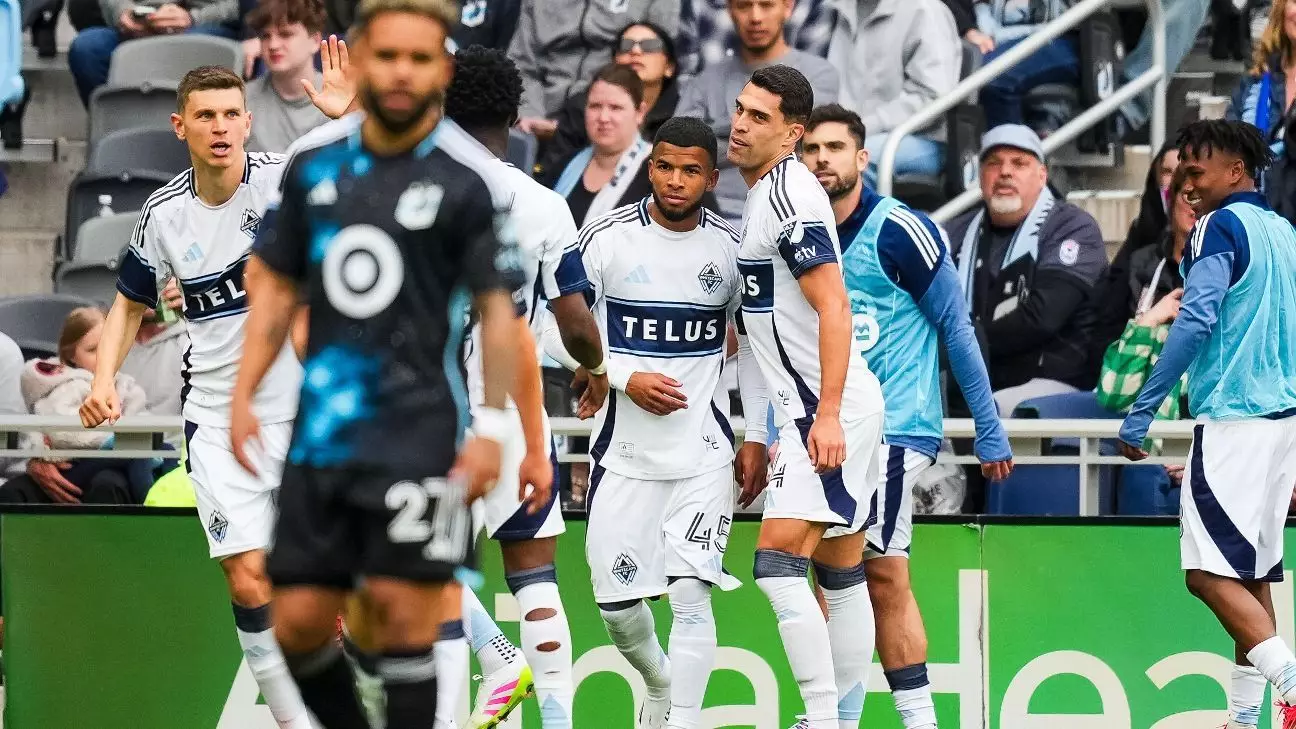Confronting Discrimination in Soccer A Call for Change
Soccer is a sport that unites people across the globe, transcending cultural and geographical barriers. Yet, despite its universal appeal, the game still faces the persistent issue of discrimination. Recently, Major League Soccer (MLS) announced an investigation into a potential violation of its Non-Discrimination Policy during a match between Minnesota United FC and the Vancouver Whitecaps. This incident serves as a stark reminder that, while soccer can bring people together, it also reflects broader societal challenges that we must address.
During the 95th minute of this high-stakes match, emotions ran high as players Joseph Rosales from Minnesota and Emmanuel Sabbi from Vancouver were involved in an altercation. The tension escalated to the point where Rosales was allegedly involved in a post-game confrontation. Such incidents highlight deep-seated issues within the sport, echoing a troubling narrative of intolerance that goes beyond mere competition. Addressing these issues is crucial for fostering an inclusive environment in soccer and society at large.
Key Takeaways
- Soccer is a global sport that still faces significant issues regarding discrimination.
- Recent incidents have highlighted the need for clearer protocols and proactive measures.
- Education and community involvement are essential for creating an inclusive culture.
Referee Intervention A Double-Edged Sword
The role of referees in managing such situations is critical yet complicated. During this match, referee Drew Fischer’s intervention raised questions about how effectively current protocols address discrimination on the field. Despite consulting with team managers and captains, the lack of sanctions against Rosales suggested ambiguity in interpreting events on the pitch. This points to a pressing need for more robust training and clearer communication among officials to uphold a standard of zero tolerance towards discrimination.
Historically, leagues have taken disciplinary actions against players for discriminatory remarks and behavior. However, these reactions often seem reactive rather than proactive. It’s essential to move beyond merely responding to allegations after they occur and focus on altering the cultural dynamics within soccer itself. By doing so, we can create a more inclusive environment that deters discriminatory behavior before it starts.
Affecting Change The Role of Education
In response to ongoing issues, MLS has partnered with Black Players for Change and the MLS Players Association to develop comprehensive training programs. These initiatives aim to educate all team members—players, coaches, and support staff—about what constitutes unacceptable language and behavior. Education serves as a powerful tool for prevention, equipping individuals with the knowledge needed to recognize and reject discrimination before it takes root.
The importance of this training cannot be overstated. Soccer serves as an arena for cultural exchange and international interaction. Players from diverse backgrounds come together on the field, which can lead to misunderstandings if not properly managed. By fostering awareness and understanding through education, players can work towards cultivating an inclusive sporting culture that respects and celebrates diversity.

Moving Forward The Collective Responsibility
The responsibility to combat discrimination does not rest solely with the league or players involved in specific incidents; it extends to fans, club officials, sponsors, and everyone associated with soccer. Each participant plays a role in either perpetuating or dismantling a culture of intolerance. A collective stance against harassment and discrimination can only be realized through a united community effort. Spectators have the power to challenge discriminatory behavior by voicing their dissent against any form of racism or harassment they witness during games.
Clubs must also cultivate environments that actively address prejudice while celebrating diversity. Fan engagement initiatives promoting inclusivity and respect can help create healthier atmospheres where every player feels safe to express themselves without fear of harassment. These efforts are vital in shaping soccer into a truly inclusive sport that upholds values of equality and mutual respect.
The Transformational Potential of Soccer
As one of the world’s most beloved sports, soccer possesses unique potential to advocate for social change. It transcends borders and bridges divides, providing a platform for dialogue about pressing issues like discrimination. With its ability to spark conversations and inspire action, MLS has an incredible opportunity to lead the charge against intolerance by confronting uncomfortable realities head-on.
The recent incident involving Minnesota United and Vancouver Whitecaps serves as both a challenge and catalyst for improvement within soccer’s culture. By embracing transformation efforts aimed at inclusivity while maintaining passion for unity on-field play –soccer can redefine itself into being more than just game but beacon hope change society today tomorrow alike! Embracing this transformation could well redefine essence beautiful fostering champions equality respect all its participants fans alike!
Final Thoughts
Tackling discrimination within soccer requires collective accountability from everyone involved: players fans officials clubs sponsors alike! As we continue work towards creating more inclusive environment through education proactive measures engagement initiatives –we must remain steadfast our commitment uphold values equality respect both field beyond! Together united purpose passion beautiful game can indeed become force positive change worldwide community!
discrimination
soccer
inclusivity
social change


Leave a Reply